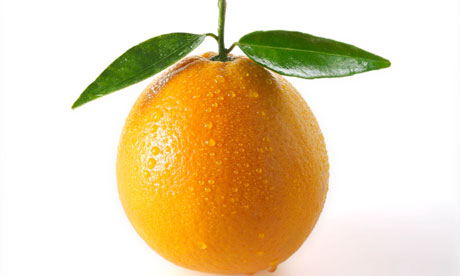
Antioxidants are said by many to have almost magical powers – to reduce heart disease, strokes, cancers, arthritis, degeneration of the macula in the eye (causing loss of sight), Parkinson's disease and Alzheimer's disease. Last month, researchers from the Laboratory of Functional Foods in Madrid and the Linus Pauling Institute in America said antioxidants could even help people with fertility problems. But what are they? Oxidation – when a substance combines with oxygen – is a normal chemical process that occurs in our bodies, but as a byproduct it can produce free radicals – unstable molecules that can damage cells. Our bodies use antioxidants to limit the cell damage (called oxidative stress) that occurs, for example, when you're digesting food, or exposed to smoke. Antioxidants include ascorbic acid (vitamin C), glutathione, lipoic acid, carotenes, vitamin E and coenzyme Q.
The dilemma: Antioxidants are found in a variety of fruit and vegetables (such as carrots, spinach, mushrooms, peppers, apples, oranges). But how can you be sure you've eaten enough, and that cooking hasn't destroyed their ability to fight free radicals? Surely it's better to take supplements that manufacturers say have the concentrated goodness of fruit and vegetables, without having to chew on the real things? Antioxidant supplements are taken by up to 10%of people in Europe and America, so how could they do any harm?
The solution: People who eat a fair bit of fruit and vegetables have reduced rates for heart disease and some cancers, but we don't know for sure that it is actually the antioxidants in these foods that protect people. It would be great to be able to take a fruit or vegetable pill that reduced the risk of getting heart disease, diabetes and neurological diseases, but, of course, life is never that simple. In fact, you shouldn't take supplements – because not only is there no good evidence they work, but there is some evidence they may be harmful.
This harm may be indirect – people who take supplements may see them as lucky charms and be cavalier with the rest of their lifestyle choices – or it may be that too many antioxidants are bad for you. The Cochrane Collaboration, an international group that sums up the evidence for health care interventions, says antioxidant supplements do more harm than good. Their review in 2007 looked at 68 trials, which included a total of over 232,000 people, looking at the effects of vitamins C, E, A or beta carotene. They found that people taking beta carotene or any of the vitamins were more likely to die during the study than those who did not.
Giving up smoking, reducing the amount of fried food you eat (frying produces free radicals that can damage cells) and regular exercise would all have more health benefits than popping supplements. But they all require effort and may be less palatable.
Laboratory research has been much more optimistic about the benefits of antioxidants than studies on real people. The researchers who said last month that antioxidants could help people with fertility studies admitted that studies on humans showed no such thing because they hadn't been done. They had looked at animal and laboratory studies.
So rather than pay for pills, spend your money on a healthy diet that includes lots of fruit and vegetables – where there is good evidence for the health benefits.

